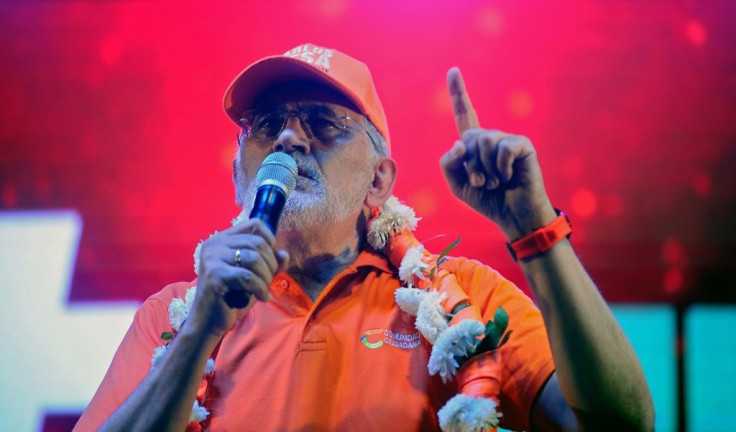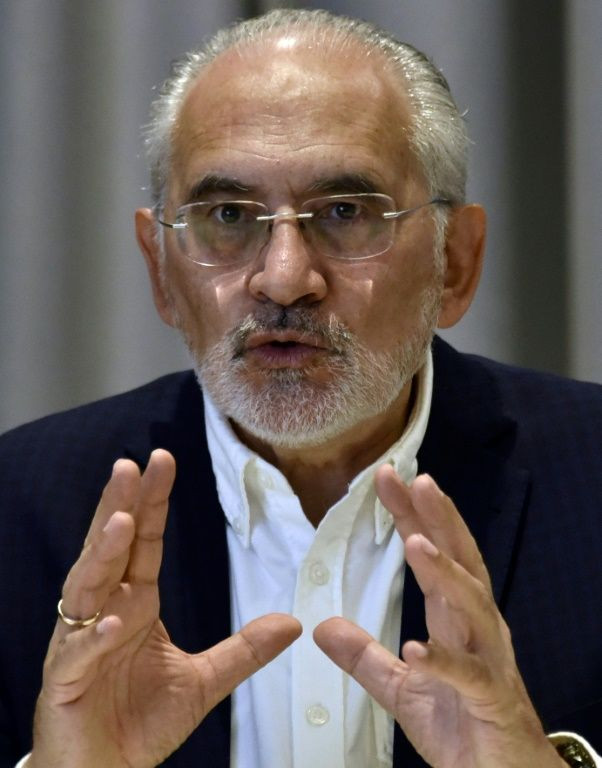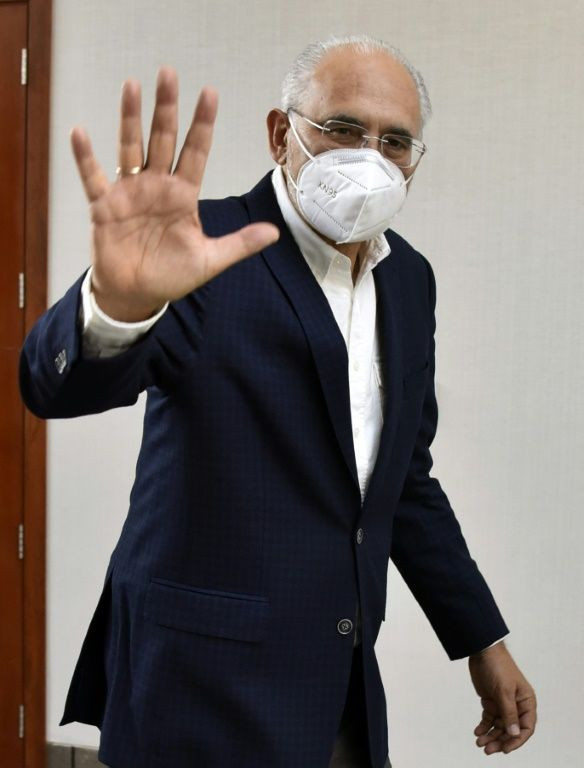Mesa Eyes Bolivia Presidency Again 15 Years On
Fifteen years after stepping down as president, Carlos Mesa is once again on the threshold of power in Bolivia, seen as conservatives' best chance of defeating leftist Luis Arce.
Mesa, a centrist, was president of the South American country from 2003 to 2005, and has unfinished business after his comeback was thwarted by Evo Morales in a fraud-tainted election a year ago.
The result was annulled amid violent street protests and the much-delayed reprise is being held Sunday.

The 67-year-old former historian and journalist says he entered politics with the "idea of being at the center of things and working to change them."
Of Spanish descent, the La Paz-born Mesa was educated in Spain. He returned to Bolivia and became an award-winning television journalist before entering politics.
He was the country's vice-president when he was thrust into presidential office in spectacular circumstances in October 2003. President Gonzalo Sanchez de Lozada had fled the country after brutally crushing a popular revolt, leaving more than 60 dead in what became known as the gas war.

De Lozada had stirred violent protests, especially in the indigenous city of El Alto, when he unveiled plans to export Bolivian natural gas through traditional rival Chile.
"The dead are going to bury you," Mesa recalled telling De Lozada in his memoir of the tumultuous period, "Presidency Under Siege".
Mesa soon faced protests from an increasingly organized indigenous community led by the up-and-coming Morales, over a rise in fuel prices.

He resigned twice, his first attempt rejected by Congress before he finally stood down in 2005, triggering the elections that brought Morales to power. Morales would only grudgingly relinquish it in disgrace nearly 14 years later.
Mesa has dismissed Morales' economic achievements -- much of them credited to Arce as his economy minister -- saying they were not achieved "on their own merit" but were due largely to skyrocketing prices for Bolivia's vast natural resources.
His political base, Comunidad Ciudadana, is a collective of small parties, citizens' platforms and regional leaders.
Most polls give Arce, the candidate of the now-exiled Morales' socialist MAS party, a solid six to seven percentage-point lead over Mesa.
Crucially, however, they show Mesa keeping well within the 10-point gap Arce needs to win the presidency outright in the first round.
Analysts believe Mesa's appeal as a moderate can pull together a broad anti-MAS vote from Bolivia's middle class to win a likely November 29 runoff.
His friend, Bolivian writer Alfonso Gumicio, described Mesa as "an incredibly methodical and systematic man, not only in his work, but also in his daily life."
Despite their trenchant political differences, Morales tapped Mesa as his envoy to seek international support for Bolivia's joust with neighboring Chile at the International Court of Justice.
The court eventually ruled that Chile was not obliged to accede to Bolivia's demands that it open up a land corridor to allow it access to the Pacific.
© Copyright AFP {{Year}}. All rights reserved.





















